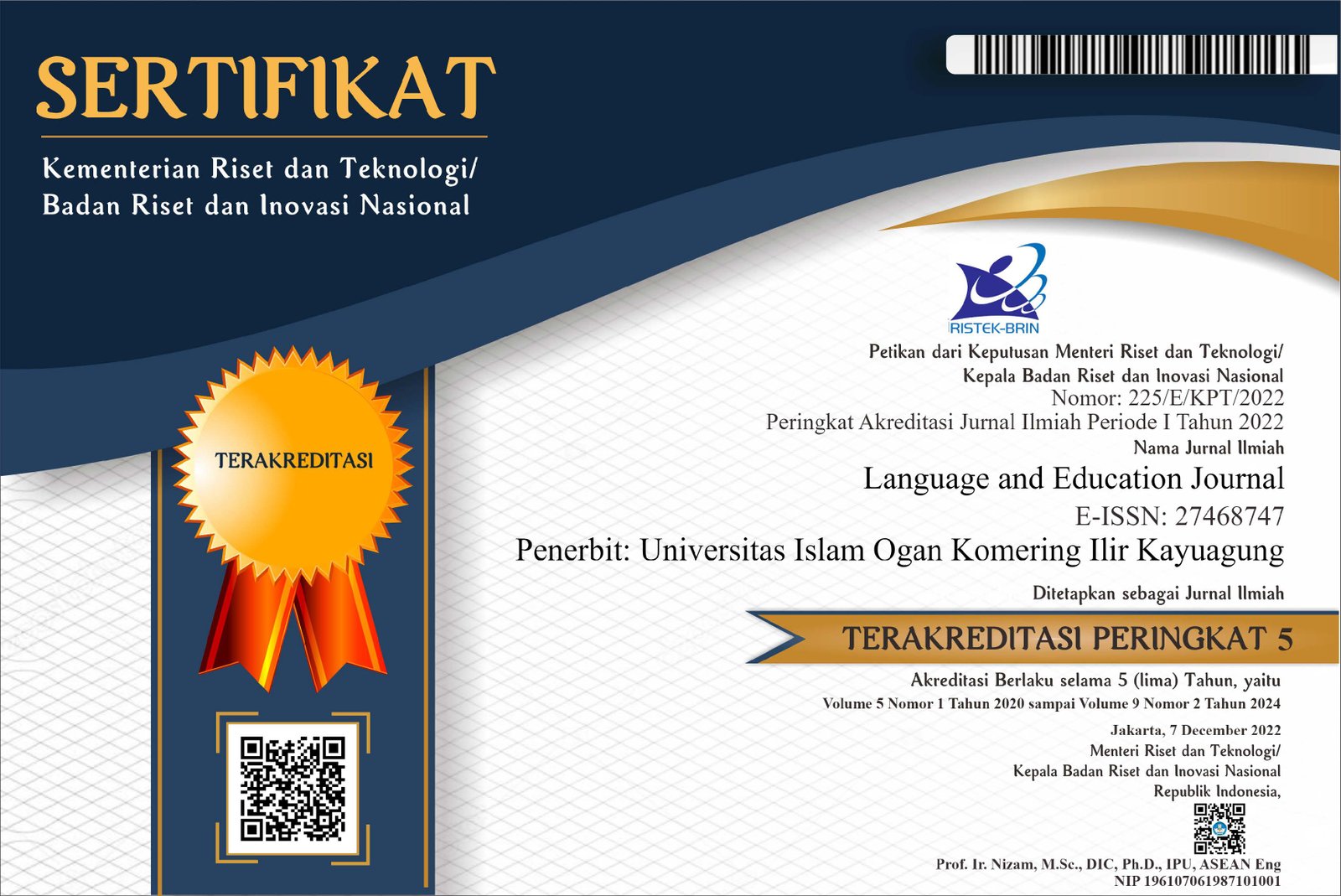THE EFFECT OF READER RESPONSE STRATEGY AND STUDENTS’ READING INTEREST TOWARD STUDENTS’ READING COMPREHENSION OF NARRATIVE TEXT AT GRADE X SMAN 2 KOTA BENGKULU
DOI:
https://doi.org/10.52237/wdr4cw26Keywords:
reader response, reading interest, student's reading, comprehension narativeAbstract
Teaching strategy and students’ reading interest influence students’ reading comprehension. Reader response strategy can be used as a variation of teaching strategy in teaching reading comprehension. The aim of the research were 1) to find out whether reader response strategy gave significantly effect in reading comprehension of narrative text than those who were taught by small group discussion at grade X of SMA Negeri 2 Bengkulu or not, 2) to find out whether there was an interaction between teaching strategies (reader response strategy and small group discussion) and students’ reading interest toward students’ reading comprehension of narrative text at grade X of SMA Negeri 2 Bengkulu or not, 3) to find out whether the students with high reading interest who were taught by using reader response strategy got significantly higher result in reading comprehension of narrative text than those who were taught by small group discussion at grade X of SMA Negeri 2 Bengkulu or not, and 4) to find out whether the students with low reading interest who were taught by using reader response strategy got significantly higher result in reading comprehension of narrative text than those who were taught by small group discussion at grade X of SMA Negeri 2 Bengkulu or not This research was an experimental research with factorial design 2x2. It was conducted at SMAN 2 Kota Bengkulu. The population of this research was all students at X science grade of SMAN 2 Kota Bengkulu which consisted of 6 classes. By using cluster random sampling, class X IPA A was selected as the experimental group and class X IPA D as the control group. To collect the data, reading interest questionnaire and reading comprehension test were used. T-test analysis and two way Anova analysis were used in analyzing the data. The results showed that: 1) reader response strategy gave significant effect toward students’ reading comprehension compared to small group discussion, 2) there was no interaction between reader response strategy and small group discussion and students’ reading interest towards students’ reading comprehension, 3) students with high reading interest who were taught by reader response strategy had significant result in reading comprehension than students who were taught by small group discussion, and 4) the students with low reading interest who were taught by reader response strategy had significant result in reading comprehension than students who were taught by small group discussion.









